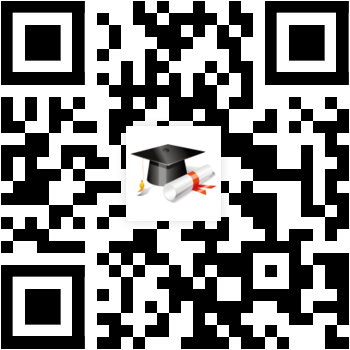同等学力申硕押题模拟—英语
来源:在职研究生招生信息网 发布时间:2015-09-01 11:39:55
中国在职研究生招生信息网的小编为大家准备了2016年同等学力申硕押题模拟—英语(一)内容,望对参加五月同等学力考试的考生们有所帮助。
1. Speaker A: Would you please close the window? I feel a bit cold.
Speaker B:
A. All right. I hope someone will close it.
B. Oh, I'm sorry, but maybe you should put on your sweater. We need some fresh air.
C. Who has opened the window? I feel cold too.
D. If you feel cold, you can put on more clothes.
2. Speaker A: Excuse me, can you tell me where the Prince's Building is?
Speaker B:
A. The Prince's Building? Why do you want to go there?
B. Sure, if you like, I can show you how to get there.
C. Well, turn to the left at the first corner after the crossroads. It's there near the corner.
D. Strange!What's going on there? Three people have asked me how to get there.
3. Speaker A: Can I help you?
Speaker B:
A. Sorry, I don't need your help.
B. What help can you give us?
C. Thanks. It's very kind of you to offer us help.
D. I'd like to try on these shoes, please.
4. Speaker A: I can't stand the school cafeteria. The food is terrible.
Speaker B:
A. I agree with you. It's quite difficult to find a seat in the cafeteria.
B. Yeah, you will feel more comfortable if you sit down.
C. Yeah, but that's not the worst thing about it. It's also very dirty.
D. I don't see why they don't supply some seats for us.
5. Speaker A: Fairly mild for the time of year.
Speaker B:
A. Which season is it now?
B. Yes, usually it is very mild at this time of the year.
C. Have you ever had this kind of weather before?
D. Yes. Quite different from the forecast.
6. Man: Betty is always complaining about her son.
Woman: She should take care of my three teenage boys and see what it's like.
Question: What does the woman mean?
A. Betty's life is easy compared with her own.
B. Betty has a more difficult life than she does.
C. Betty would like to take care of the three boys.
D. Taking care of her three teenage sons is easy.
7. Woman: I paid 50 dollars for these books at the Eaglewood Bookstore. They're really too expensive.
Man: Too expensive? They cost a lot more in other bookstores.
Question: What does the man mean?
A. He thought they were expensive.
B. He didn't think they were expensive.
C. He wanted the woman to buy books in other bookstores.
D. He thought books in other stores were just as expensive.
8. Woman: Did you think it was a good play?
Man: What I didn't understand was the very beginning.
Question: What does the man mean?
A. He didn't know how to begin to write a play.
B. He didn't like plays very much in the past.
C. He didn't want to talk about it right away.
D. He wasn't sure what the first part was about.
9. Man: I'm frustrated. We're supposed to do our assignment on the computer, but I have difficulty getting access to the computers in the library.
Woman: I understand the way you feel. I'm looking forward to the day when I can afford to get my own.
Question: What does the woman mean?
A. She can't finish her assignment, either.
B. She can't afford a computer right now.
C. The man can use her computer.
D. The man should buy a computer right away.
10. Man: I'm sorry I missed the football game, but I had a terrible cold.
Woman: You didn't miss anything We couldn't have played worse.
Question: What does the woman mean?
A. She's never watched a better game.
B. Football is her favorite pastime.
C. The game has been canceled.
D. Their team played very badly.
The study of history by way of a fat textbook and become quickly immersed in a vast sea of names, dates, events, and statistics. The students' skills are then tested by examinations that require them to show how much of the data they remember. From this experience a number of conclusions seem obvious: the study of history is the study of "facts" about the past; the more "facts" you know, the better you are as a student of history. But in this way students may become confused upon discovering that historians often disagree sharply. They discover that historians dealing with the same event may come to quite different conclusions about it.
Obviously, there is no easy solution to this problem. Historians disagree because each historian views the past from a particular perspective. Once students grasp this, they have taken the first step toward being able to evaluate the work of various historians. But before they can take this first step, students must consider a problem they have more or less taken for granted. They must ask themselves what history really is.
The word history has several meanings. In its broadest sense, it denotes the whole of the human past. More restricted is the notion that history is the recorded past, that is, that part of human life which has left some sort of record such as folk tales, artifacts, or written documents. Finally, history may be defined as that which historians write about the past.
31. What is the meaning of the word "fat" in Line 1?
A. Big. B. Hard. C. Thick. D. Well-filled.
32. What do most history teachers require their students to do, according to the first paragraph?
A. They ask their students to read a lot of history books.
B. They make their students show interest in names, dates, events, and statistics.
C. They ask their students to take many examinations.
D. They make students get involved in many names, dates, events and statistics, and keep them in mind.
33. Why do students become confused?
A. They can not understand the "fact" about the past.
B. They are confused by their teachers.
C. They find the descriptions and explanations of the same historical events are different from one historian to another.
D. They don't know that the quite different conclusions may come out from the same event.
34. Why do historians disagree with each other?
A. They stand in different places.
B. They just pick up the most important facts they believe.
C. They are not good friends.
D. Both B and C.
35. What does "a problem" in Line 4 para.2 refer to?
A. the connotation of the history itself
B. The historian has different views towards the past.
C. The history's meaning is various.
D. The students have the ability to judge the history book.
36. Which of the following statements is NOT perfectly true?
A. There is no way to solve the problem of disagreements among historians.
B. If the students want to evaluate the work of various historians, they should first know what history really is.
C. History is of course written by historians.
D. The concept of history in students' mind is different from that in historians' mind.
上一篇: 同等学力经济学模拟题试卷及答案
下一篇: 在职博士英语模拟题






















